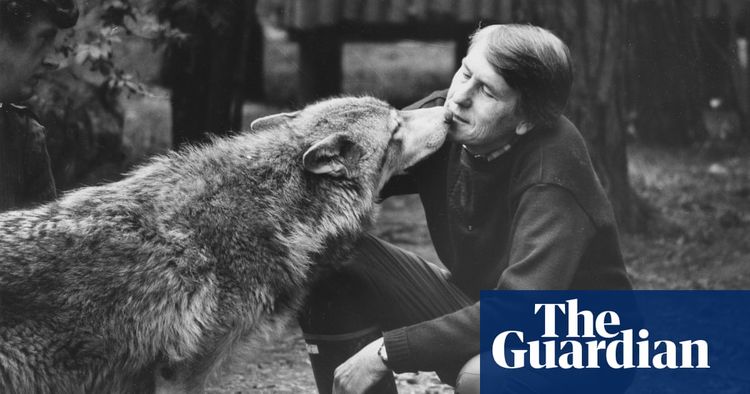Tony Soper obituary

The BBC Natural History Unit has gained global recognition for hit television shows like Planet Earth. The concept for a “wildlife unit” located in Bristol was proposed by renowned naturalist and television host Tony Soper, who recently passed away at the age of 95. However, he declined the opportunity to lead the unit, preferring to focus on creating programs rather than managing them.
He enjoyed a remarkable career as a wildlife television presenter. His laid-back demeanor, rugged looks, and unique Devon accent endeared him to many viewers. From the early 1960s until the late 1980s, he significantly impacted multiple generations of aspiring naturalists. Together with prominent figures like Peter Scott and Bill Oddie, he played a crucial role in increasing public awareness of British wildlife.
Tony was born in Southampton to Ella (née Lythgoe), who used to work as a shop assistant and was an active member of the local Townswomen’s Guild, and Bert Soper, who worked as a shipping agent. The family quickly relocated to Plymouth, and Tony took pride in being a Devonian.
Tony went to Hyde Park elementary and then to Devonport high schools, where he completed his School Certificate in 1947. People expected him to follow in his father’s footsteps, but as he remembered, “I loved the ships, but the office wasn’t for me.” Therefore, he took the initiative and approached the local BBC, ultimately starting his career as a trainee engineer.
He quickly became drawn to the thrilling world of radio production. After spending some time as an assistant studio manager, he relocated to Bristol in 1950 to work on various programs, including those focused on wildlife.
The next year, he and producer Desmond Hawkins went to a talk given by Scott, which included footage of Scott’s trips to Iceland. They both recognized that this topic was a perfect fit for the emerging television format. In January 1954, the very first live wildlife television broadcast, titled Wild Geese in Winter, went live from the Wildfowl Trust headquarters in Slimbridge, Gloucestershire, with Tony stepping in as the unofficial assistant floor manager.
In 1956, he created the second season of Look, a live outdoor broadcast show hosted by Scott. After it proved popular, he wrote a memo to Hawkins, who had become the head of programs in Bristol, proposing the idea of starting a new wildlife division. The following year, the Natural History Unit was established, and Tony was tasked with purchasing the first camera: a 16mm clockwork Bolex. He utilized his newly acquired photography skills while traveling with Scott and his wife, Philippa, to the Galápagos Islands for the 1960 series Faraway Look.
In 1965, he released *The Bird Table Book*, a comprehensive guide to birds found in gardens. This book became a timeless favorite and stayed in publication until the year 2000. Two years later, in 1967, he started leading cruises organized by the RSPB to observe the large groups of avocets that winter in Devon, a tradition that still exists today.
Tony truly became well-known as a television host, earning the nickname "One-take Tony" due to his calm and steady demeanor. His major opportunity came in 1962 when he joined the children's show Animal Magic alongside Johnny Morris. However, he soon realized that the style of using British regional accents for the animals at Bristol Zoo, which was the hallmark of Morris's approach, wasn't quite right for him. As a result, he left the BBC to explore a freelance career.
His friendly nature made him popular not only with the audience but also with his coworkers, who remember him as a delight to collaborate with.
Tony tied the knot with Rae Francis in 1960, but their marriage ended in divorce nine years later. In 1971, he wed Hilary Brooke, an artist and printmaker, and together they welcomed two sons. At that point, his career as a presenter was really gaining momentum, featuring well-loved shows such as Soper at Large (1972), Wildtrack (1978), Beside the Sea (1979), and Discovering Birds (1983). The last two were produced by the BBC’s Continuing Education division in London.
In 1980, the Natural History Unit kicked off a new series of live broadcasts called Birdwatch, which can be seen as a precursor to Springwatch. Tony's remarkable calmness was really put to the test during a live show from the gannet colony on Bass Rock, located near North Berwick. A thick fog rolled in, completely obscuring the view of the birds. Despite this challenge, Tony skillfully kept the audience engaged until the fog eventually cleared.
In the early 1980s, Tony served as the main host of a live current events program called Nature, which was groundbreaking in its effort to showcase impactful conservation stories on television. During my time as a rookie producer on the show, I always appreciated his kindness, support, and encouragement.
By the end of the decade, though, Tony's career as a presenter was declining, as executives at the BBC felt his easygoing, casual approach was becoming outdated.
Recognizing that his popularity was declining, he chose to embark on a new path by leading wildlife cruises, primarily to the Arctic and Antarctica. He once estimated that he had traversed the infamous Drake Passage to Antarctica over 100 times.
This resulted in the publication of additional books, including a wildlife series from the travel guide company Bradt. Tony's older son, Tim, ventured into expedition tourism just like his father and helped establish EYOS Expeditions, a luxury charter service. Meanwhile, his younger son, Jack, took on the role of a producer for BBC radio. The cruise operations persisted until 2012, and afterward, Tony engaged in freelance projects, one of which was the self-publication of The Northeast Passage (2016), a book focusing on the wildlife found on the islands located above the Arctic Circle, between the Atlantic and Pacific Oceans.
He is remembered by his partner Hilary, their sons, and five grandchildren.









































